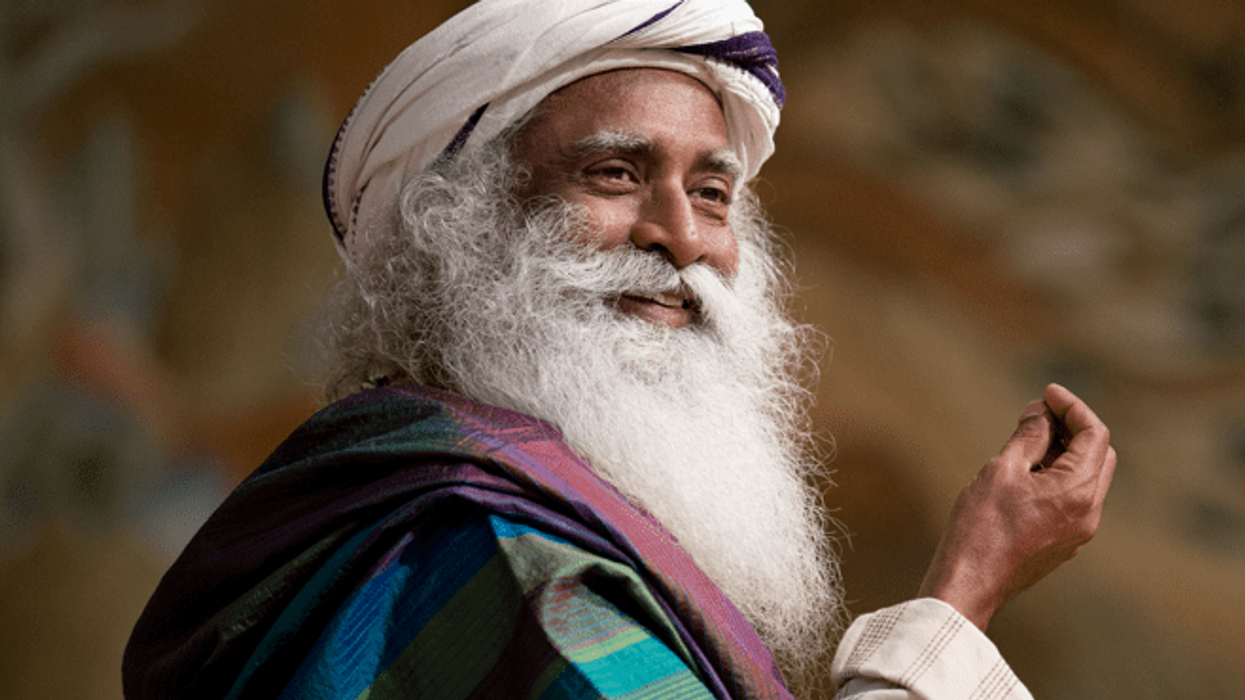SADHGURU: The body needs rest, not sleep. In most people’s experience, sleep is the deepest form of restfulness they know, so they talk about sleep. But, essentially, the body is not asking for sleep, it is looking for restfulness. Your mornings would be pretty bad if your nights were not restful. So, it is not sleep, but restfulness that makes the difference.
If you keep your body relaxed throughout the day, if your work, exercise and every other activity is a form of relaxation for you, your sleep quota will go down naturally. The problem is people have been taught to do everything hard – in tension. I see people walking very tense in the park. This sort of exercise will bring more harm than wellbeing. Don’t go at everything like it is a war. Whether you are walking, jogging or exercising, why don’t you do it easily, joyfully?
Don’t battle with life. Keeping yourself fit and well is not a battle. Play a game, swim, walk – whatever you like. You will only have a problem if all you want to do is eat cheesecake. Otherwise, there is no problem about being relaxed with any activity.
If you are sleeping eight or nine hours a day, one thing to look at is the food you eat. Consuming at least a certain amount of vegetarian material, particularly foods that can be eaten in their natural, uncooked condition is important for general wellbeing. In the process of cooking, a large volume of prana or life energy is destroyed. This is one reason why lethargy can set within the body. If a certain amount of fresh fruits and vegetables are eaten, there are many benefits, but one immediate noticeable effect is that your sleep quota will come down.
In Indian culture, traditionally it is said that any cooked food should always be eaten within 1.5 to two hours of being cooked. Keeping cooked food in a fridge for long periods of time and then eating it can raise your sleep quota, in addition to causing many other problems to the body. The same is true for canned food. There is something called “tamas” which literally means “inertia.” Food that is kept like this will have a lot of tamas, which can bring down your mental agility and alertness.
There are quite a few people who are in such a mental state that unless they load themselves with food and make the body dull, they cannot fall asleep. You must give sufficient time for digestion to happen before you sleep. I would say 80 per cent of the food consumed will go waste if you fall asleep within two hours of eating. If you are in a condition where you cannot sleep unless you have a full stomach, you need to address this issue. This is not about sleep, this is a certain mental state.
When the body is positioned horizontally, you can immediately make out that your pulse rate drops. The body makes this adjustment, because if blood is pumped with the same force, too much will go into your head, causing damage. The blood vessels which go upward are a finer arrangement compared to those going down. As they go up into the brain, they become almost hairlike, to the point that they cannot take an extra drop.
When you sleep, if you place your head towards the north and stay that way for five to six hours, the magnetic pull of the earth will cause pressure on your brain because iron is an important ingredient in your blood. It is not that if you sleep this way you will fall dead. But if you do this every day, you are asking for trouble. If you are beyond a certain age and your blood vessels are weak, it can result in hemorrhages and paralytic strokes. Even if your system is sturdy, you may not sleep very well because there is more circulation in the brain than there should be.
If you are in the northern hemisphere, east is the best direction to keep your head when you sleep. Northeast is okay. West is all right. South, if you must. North, no. In the southern hemisphere, don’t put your head to the south.
Ranked among the 50 most influential people in India, Sadhguru is a yogi, mystic, visionary and bestselling author. He was honoured with the Padma Vibhushan, India’s highest civilian award, in 2017, for exceptional and distinguished service.




